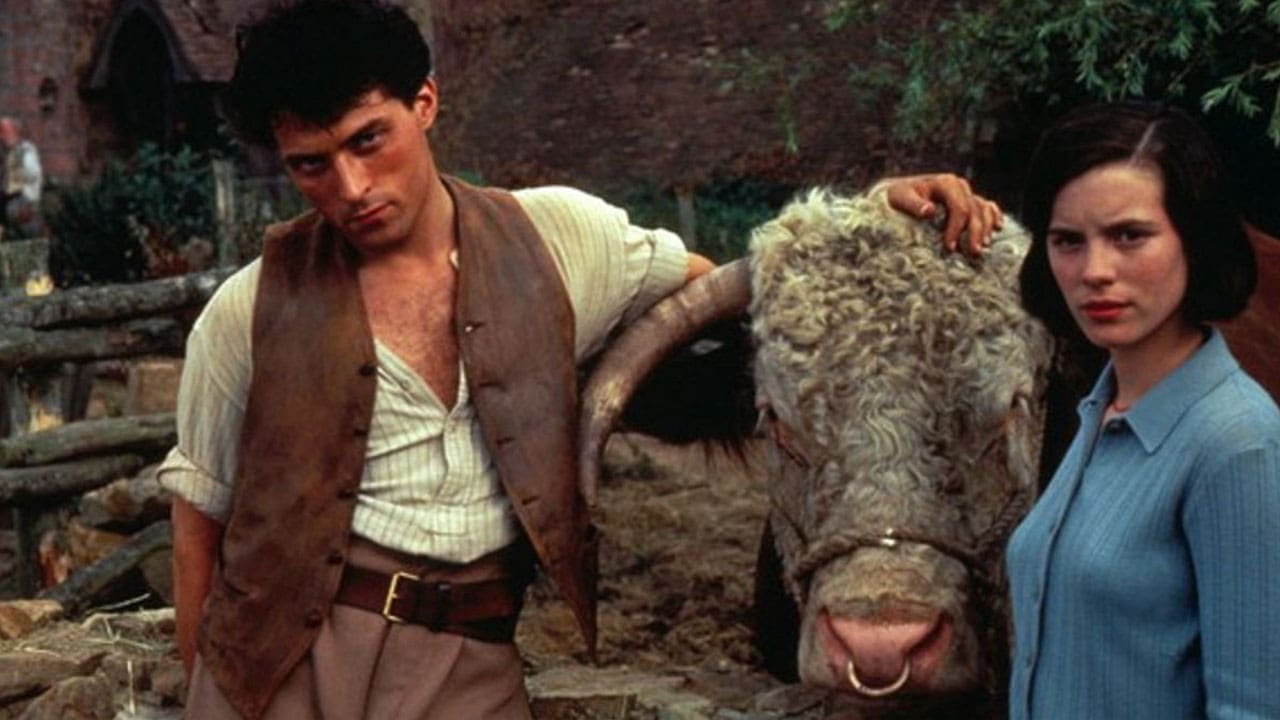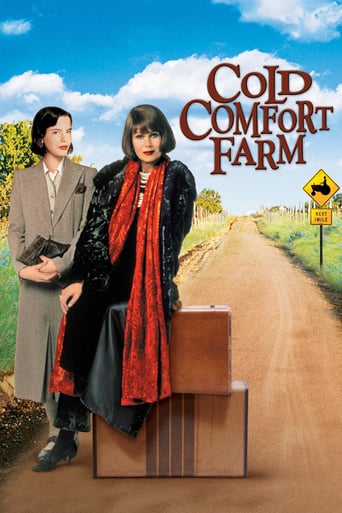ShangLuda
Admirable film.
Sexyloutak
Absolutely the worst movie.
Benas Mcloughlin
Worth seeing just to witness how winsome it is.
kenjha
A young woman in 1930s England tries to mooch off her relatives as she gathers material for her future career as a writer. This is meant to be a spoof of the novels of such writers as Dickens and Austen. It is described as a comedy, and the way the actors deliver their lines certainly suggests that the dialog is dripping with wit. The only problem is that there is nary a single chuckle to be had from the humorless script. With hardly a plot to hold one's interest, it soon turns into a dreary bore. It is based on a popular comic novel from the 1930s; hence the humor is either dated or the screenplay does not do justice to the novel. It's a shame because it has a good cast that seems to be really trying.
Robert J. Maxwell
Kate Bekinsale plays a chic young woman who inherits a pittance and, to save money and perhaps gather material for a novel, moves to remote Cold Comfort Farm. She gets more than she bargained for. First of all, the farm is really a farm, with cows, pigs, horses and barns. Second, it's a sprawling, dilapidated affair, which one character refers to as "the house of Usher." Third, the place is cluttered and filthy and no one cares. Fourth, the half dozen or so residents are just as filthy as the floor and seem to have been inbred for generations. Finally, they are apparently ruled by an old madwoman who sequesters herself in an upstairs room and mutters about having once seen something nasty in the woodshed.Now, these are all very queer characters and each in his own way is a fit case study of psychopathology. Perhaps the most interesting is the preacher, who carries on in the local church, the walls of which are spritzed with lurid graffiti, about how much hell hurts. Did you ever burn your finger? It hurt, didn't it. And what did you do about the burned finger? You put butter on it. Well, friends, THERE IS NO BUTTER IN HELL. Man, there is material enough for a dozen novels.There is a problem with a movie so filled with nuts though. It reminded me of a movie I'd worked in, "Crimes of the Heart," written by Beth Hemsley, about three quirky sisters, any one of whom would have provided a viable narrative. But "Crimes of the Heart," like "Cold Comfort Farm," really has nowhere to much go.In this movie, Kate Bekinsale -- a fantasy of pale and vulnerable beauty -- straightens everything out. People wind up married to those whom they should marry. A half-hour, off-screen chat brings the old crone to her senses and she takes off for Paris. The farm ends up in the hands of the most capable of its workers. Bekinsale literally sails off with the handsome young aviator.Afterwards I felt as if I'd visited a mother who trotted out a handful of lovely children, had them rattle off an idiosyncratic and brilliant version of the Trout Quintet, and then shuffled them outside to play. Gone in a twinkling.It's interesting without being particularly well constructed. Loved the characters, some of them anyway, and almost fell asleep waiting for the happy ending.
larrysmile1
This movie is listed as a comedy genre. However, aside from the old matriarch beating everybody with a newspaper, I did not find one funny scene to laugh at.I won't criticize the acting because the performers do a fine job in their acting abilities. But, the story is unbelievable by American contemporary standards. I can't conceive of any American family which would relegate themselves to such constant misery by living on a farm what is falling apart. The characters would have left the farm for the city long ago and "Robert Poste's child" would have showed up to a half-empty farm. Likewise, the characters are too dirty living. Unwashed faces, dirty clothes never cleaned all make for an interesting scene if it were a war movie with the people in the mud in combat. But, for day to day living it seems that even in the 1920s people cleaned their bodies and clothes.Well, as Flora Poste flies off into the sunset in an open cockpit plane, "All's well that ends well."I think this "story" would turn out better if it were a stage play rather than a movie. It has stage possibilities! The characters' personalities lend themselves to providing a good stage casting.Larry from Illinois
T Y
This movie depicts a post-Victorian, but nonetheless backwards-glancing, (1930s) rural England. Given this material; the propensity of the English to believe it's their job to tidy up rooms, regions and nations, matched by the arrogance to subjugate and condescend to anyone they deem untidy over the centuries; it seems like the movie could be a drag. As a story it's been told one too many times... but a light touch and a off-kilter tone make it an enjoyable fable. It's a fond allegory of empire."Robert Post's child" w/o hope of fortune but with great confidence in her world-view, takes on a rural situation out of boredom, works absurdly positive miracles, and sets things right, handily rescuing everyone from their self-constructed cages; all while reckoning with the gravitas of an unseen Miss Havisham in the room off the landing While Flora has no humility of her own, she does have manners; and with those, she pushes a bunch of maladaptive family members to a place they can unload their baggage by rediscovering humility.Making it all more bearable, the urbanites (played by Lumley and Beckinsale), typically snide and unlikeable, instead are awfully pleasant when they condescend. A few lines still make me smirk. "It's not good to be dewy-eyed around smart people, but you can always secretly despise them" is given a bright, cheerful delivery by Lumley. While perfectly serviceable as an unspoken rule of etiquette, it sounds quite absurd when uttered. A house-man who develops a admiration for his dish-scrubber, "...me and my little mop" always makes me laugh.Manners come into play everywhere. Ruben's change from a gruff beast to a sweet fella is nicely done. A late scene in which Miss Post must gently rebuff his proposal has a sublime, light touch. Strangely, after countless viewings where I simply admired the writing, it made me tear up for the first time today. The cast all does expert work, making most of the movie look effortless. Lumley's bespoke Miss Smiley could make for a good movie on her own.The film was developed for British TV which explains a regrettable gag here and there, and some resolutions that are just too pat. Schlesinger replaced somebody else as director at the last minute. As director, it feels like he's confident in the material and just gets out of the way. I think there are just slight problems that prevent it from becoming a classic. Aunt Ada "saw something nasty in the woodshed" a few too many times. But there is an abundance of pleasures in it. The way manners are voiced... the ramshackle design of the old farmhouse. The production designer for Nanny McPhee has definitely seen this movie.Once upon a time, movies were made for learned adults.

